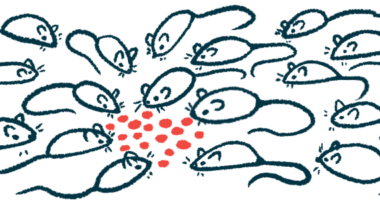Phase 1/2 Trial Investigating ACTUS-101 Gene Therapy for Pompe Disease Doses First Patient

The first patient has been dosed in a Phase 1/2 clinical trial evaluating the safety and effects of ACTUS-101, a potential one-time gene therapy for late-onset Pompe disease developed by Actus Therapeutics.
The randomized, open-label trial (NCT03533673) is still recruiting for an estimated total of six participants.
“This is an exciting milestone for our company but most importantly, if ACTUS-101 is successful, it could have a meaningful impact on the quality of life for those who suffer from Pompe Disease,” Sheila Mikhail, CEO and co-founder of AskBio, said in a press release.
“Further, ACTUS 101 could replace enzyme replacement therapy (ERT) every other week with the potential to be a ground-breaking metabolic treatment for an unforgiving disease now showing up in an increasing number of patients,” Mikhail added.
Mutations in the GAA gene — which provides instructions for making the acid-alpha-glucosidase (GAA) enzyme — lead to reduced activity or complete loss of this enzyme, the underlying cause of Pompe disease.
Enzyme replacement therapy (ERT), in which patients receive a lab-made version of GAA, is currently the standard treatment for this rare disease. ERT restores the normal glycogen metabolism that was previously faulty and prevents the toxic accumulation of glycogen and its targets and byproducts in organs and tissues. This is particularly important for the skeletal and cardiac muscles where glycogen buildup hinders the muscle’s normal function.
However, many patients develop antibodies against the man-made GAA, limiting its efficacy, and in several cases, patients continue to experience persistent muscle weakness.
ACTUS-101 is an investigational gene therapy for Pompe disease that uses a harmless virus, called the adeno-associated virus (AAV), as a vehicle. The gene therapy, delivered into the blood, specifically targets the liver to promote the production of the GAA enzyme.
Preclinical studies showed that delivering GAA gene therapies to the liver has the potential to overcome the limitations of ERT.
“Preclinical data suggest that this gene therapy product may prove to continuously produce the GAA they (Pompe patients) are lacking. If enough GAA is produced, patients may be able to stop ERT entirely. This would improve their overall quality of life by eliminating the need for weekly or bi-weekly ERT treatments while also strengthening their outlook for living with Pompe,” said Dwight Koeberl, MD, PhD, a Pompe disease expert and one of the key players behind the development of the gene therapy.
The Phase 1/2 trial is taking place at the Duke University in North Carolina. All participants will receive ACTUS-101, administered in two different doses, along with their current ERT. As the trial progresses and depending on the safety and patients’ response to the treatment, ERT may be suspended.
The study’s primary objective is to assess ACTUS-101’s safety. Additional goals include investigating the gene therapy’s activity by measuring GAA levels in the muscle and the immune response against GAA, among other parameters.
“If we are successful with ACTUS-101, this carefully planned therapeutic approach will bring a renewed sense of hope to the Pompe Disease community,” said Priya Kishnani, MD, who has been treating Pompe patients for more than 20 years and has also been integral in ACTUS-101’s development.
“This has the potential to not only be life-changing for our patients with Pompe disease but also could impact how we approach other inherited metabolic disorders. It is an exciting time in the field, with gene therapy treatment as a potential therapeutic approach for many conditions for which there is no treatment or as a way to enhance treatment outcomes,” Kishnani added.
ACTUS-101 received the FDA’s fast track designation for Pompe disease, which allows for expedited development and review of potential therapies for serious diseases with a high unmet medical need.






